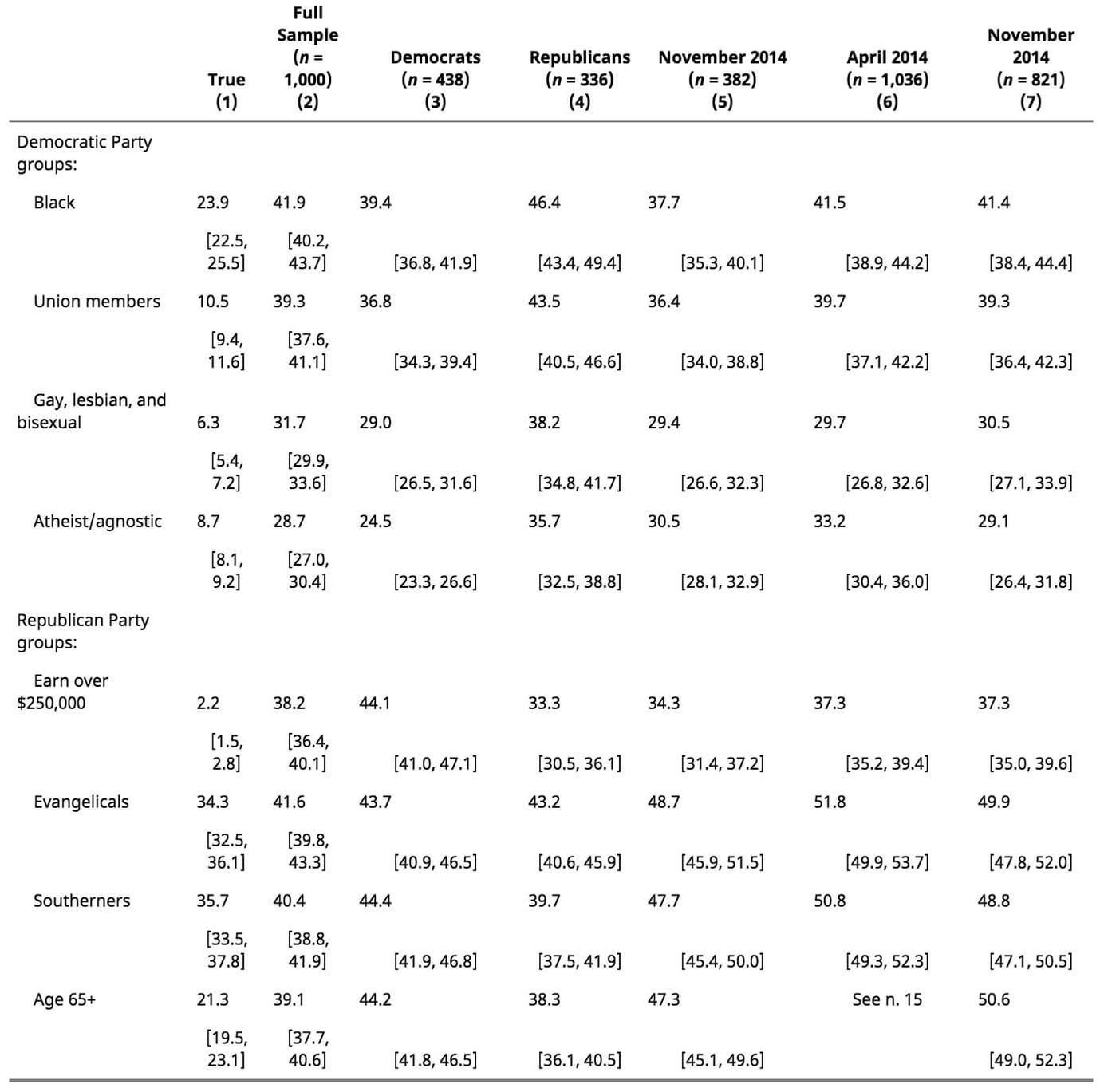How Well Do You Know the Other Party?
According to new research by Douglas J. Ahler and Gaurav Sood at Florida State University, Americans show significant bias in how they perceive political parties. Ahler and Sood asked 1,000 Americans to guess what percentage of each party is made up of groups stereotypically associated with that party. In every category, the respondents overestimated the actual numbers, often by significant margins.

As the chart above shows, the respondents were slightly more accurate when making guesses about their own party. But only slightly. Which shows our assumptions about our own parties aren't much better than our assumptions about the other party.
Perhaps more surprising, the respondents who reported tracking politics MORE CLOSELY, where LESS ACCURATE in their guesses. The research does not tackle the reasons behind this negative correlation, but it raises fascinating questions about the information reaching the electorate through advertising, traditional media and other online sources.
Bottom line, according to this study, we shouldn't assume we know who makes up the other party. As Guarav Sood put it, “What we know about the American polity is that they don’t actually pay a ton of attention to politics, but they seem to have these deeply-prejudicial views about the other side. And what we are telling you is that what you may know… ain’t so right.”
The full study is available here: https://www.journals.uchicago.edu/doi/full/10.1086/697253
This story is part of the Twin Cities PBS "In It Together" initiative in which we share stories on TV and online that explore values that underpin our democracy, things such as compromise, understanding and common ground.
